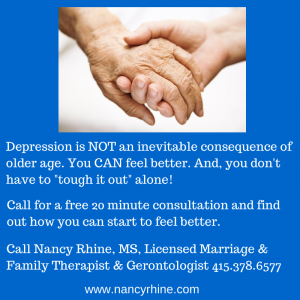seniors
Boomers and Psychedelic-Assisted Psychotherapy
Boomers and Psychedelic-Assisted Psychotherapy (PAT)
As a longtime Marriage and Family Therapist focused on serving midlife and older adults, I noticed early how few therapists specialize in working with these populations.
This is similar to the medical field where there are very few geriatricians, for various reasons I won’t go into here.
In the last few years, as I began to work in the field of psychedelic-assisted psychotherapy (PAT), I noticed the same phenomenon. That is, a community of practitioners not much interested in older people. At least, not enough to really study aging, with its inherent challenges and opportunities.
Many therapists, doctors, and researchers have mistakenly assumed that older people are the same as younger people – an ageist approach in my opinion. Older folks experience unique developmental tasks – check out Erik and Joan Erikson’s book, “The Life Cycle Completed”, especially the brilliant 9th chapter. Society-based pressures, shifting physiologies and often misdiagnosed and pathologized emotions push on folks in their third season of life.
Fortunately, things appear to be changing. An acknowledgment of how older people have been underacknowledged and invisible in our Western culture for the past decades is beginning to surface.
Here are two articles, one I wrote and one in which I am quoted:
“Older Adults and Psychedelics”
https://psychedelic.support/resources/older-adults-and-psychedelics/
“Older Generations Are Reclaiming Rites of Passage”
A Recent research study out of UCSF called “Effects of Psychedelics in Older Adults: A Prospective Cohort Study” puts it like this:
“Importantly, a recent review found that among 1,400 participants enrolled in 36 psychedelic trials since 1967, only 19 participants (1.4%) were 65 years or older. The safety and efficacy of psychedelic treatments in older populations thus remains largely unknown, although several authors have argued for the potential of psychedelics to loosen cognitive habits in old age generally as well as more formally as treatments for Alzheimer’s disease, including mild cognitive impairment and even health cognitive decline and age-related affective changes.
Other studies are publishing results on the clinical use of psychedelics for existential anxiety and depression at the end of life and in palliative care situations.
Here is one from Johns Hopkins called “Psychedelics May Lessen Fear of Death and Dying, Similar to Feelings Reported by Those Who’ve Had Near Death Experiences”:
My opinion about the growing amount of attention on older adults and research is that it’s about time! And, much more is needed! As usual, boomers are exploring and pushing outdated boundaries.
For the past year, it is my privilege to lead two groups – one for PAT practitioners who are serving this population. We focus on the topics of aging, palliative care, and end-of-life. Our small group includes a psychologist, therapist, social worker, hospice nurse, death doula, somatic sound healer, chaplain, and more.
The second group is called EPIC which stands for Elder Psychedelic Integration Café. Participants’ ages range from 67 to 90. Each individual has experienced PAT and this setting is a place to mutually learn from and support each other’s paths of exploration.
In my private practice I work in connection with a licensed clinic, using ketamine-assisted psychotherapy (KAP). KAP can be very effective in mitigating depression, anxiety, chronic pain, and end-of-life fears. The treatments I provide are given in my home office.
I also help clients to prepare for and integrate sessions with psilocybin and MDMA. I do not provide the substances. When people have solid preparation before and integrative support after an experience, the benefits are often profound.
It is heartening and exciting to see older people finally be included in this burgeoning field of healing!
Successful Aging Takes a Team!
Successful Aging Takes A Team!
Let’s talk about why it’s critical to their quality of life to have a strong support team around seniors who are growing older.
Why?
Because I see so many older people in my private practice who face, for example, situations where they are grappling with:
- family members or loved ones with very strong opinions about what is best for them – opinions danabol that may or may not be informed and wise
- *no* family members or close friends at all to advocate for them
- a primary care physician who is prescribing medications but not following them in after-care. What is known as the “diagnose and adios” routine.
- a specialist or two who is also prescribing – say for instance a cardiologist or endocrinologist – but who is not tracking the interaction of *all* of the medications involved
- a psychiatrist who may be also be treating and prescribing psychiatric medications
- possibly a nutritionist, alternative health practitioner or two prescribing supplements, vitamins and minerals which may all be fine but which also carry side effects that can contribute to mood problems.
Way more often than not, there is very little, if any, communication and coordination amongst the health professionals. This coordinator function may have been done in the past by the primary care doc who managed the broad perspective overview of how each of his patients were doing. But nowadays primary docs are under so much time pressure in their practices that they just do not have time take on this role.
In order to build that coordinated team which will support an individual’s successful aging, it takes someone stepping into the role of being a skilled ADVOCATE. A person who knows how to coordinate effective communication amongst team members and who is in charge of reaching out on behalf of the patient to represent their concerns. Someone who can help the patient communicate their concerns and questions to other team members, and who also helps the patient remember the answers and instructions of doctors. Team members need to work in concert with each other, supporting the various lens through which each patient is viewed.
All of this process needs to be done with the utmost RESPECT for each patient where the patient has TRUST in the advocate that he or she is representing the wishes of the patient towards the goal of the best possible quality of life at any stage.
Gerontologists and mental health professionals who understand the importance of building good communication and coordination amongst care teams can be invaluable to the patient and family. Sometimes, it is care managers who provide this role, sometimes it’s an adult child, and sometimes it’s gerontological counselor.
Whoever it is that takes the lead in this role, a support team that is identified, built, coordinated and in good communication, will result in a patient who is much more likely to thrive and much less likely to fall through the cracks.
This is the health care situation for older people in our country today. Just the facts. And totally doable to navigate through it successfully. With help. With a solid, caring team.
A New Year & A New Perspective
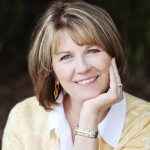 A New Year & A New Perspective
A New Year & A New Perspective
Dear friends and colleagues in the healing arts,
2015 presented me with some interesting challenges. After the death of my beloved mother and the near death and continued illness of my husband, I wondered how we healers can continue to serve our patients when we ourselves are in the midst of tough times. Maybe some of you have come up against this question too.
What I discovered is, as songwriter Leonard Cohen writes, “The birds they sang at the break of day. Start again I heard them say. Don’t dwell on what has passed away or what is yet to be. Ring the bells that still can ring. Forget your perfect offering. There is a crack in everything. That’s how the light gets in.”
It’s this last part that has surprised me. What an unexpected gift is the grace and light that can emerge out of adversity. What I am learned continually deepens both my work and my home life.
As we get older, we find ourselves adding to our toolkit of life skills. Mindfulness tools have reentered my life and work in a big way. And so has my intention to reach a much wider audience through teaching nationally about conscious aging. The need and demand for navigation help is so great as the boomer generation enters the unfamiliar terrain of older life.
If you have friends, family or patients in these populations below who you think I might be able to help or if you have questions yourself, please feel free to reach out anytime:
- People in their 50’s, 60’s and 70’s waking up to their own sense of aging – often through illness or other changes in themselves or their loved ones. They seek answers, solutions, and guidance.
- Adult children of aging parents who feel confounded and frustrated about how to best help their parents through a myriad of difficult circumstances. They are the sandwich generation with aging parents, children and often grandchildren too.
- Families where adult children and aging parents need to and want to come to some new understandings and find a closeness now to the extent they can while they can still can.
- People in their 80’s and early 90’s who are facing their last years with all that that entails – memories, regrets, fears, peace and contemplation – all healthy parts of this stage of life. Having a genuinely caring nonjudgmental skilled listener is so valuable.
You might already know that there are very few psychotherapists in Marin who have advance training in gerontology. With my expertise in the fields of aging, communication, business, medicine and psychology, I am uniquely qualified to help your midlife and older patients, friends and family.
My offices are in Mill Valley and San Anselmo. Telephone appointments are also available for people who do not live close by. I provide a free initial phone consultation. And if I can’t help, I can often steer people to other beneficial resources.
With warm wishes for a peaceful 2016,
Nancy Rhine, MS, LMFT, CPG
415-378-6577
nrhine@gmail.com
Depression is NOT inevitable in older life.
 Our youth-oriented Western culture seems to tell us that we are all doomed to succumb to debilitating depression as an inevitable part of growing older. This is not true!
Our youth-oriented Western culture seems to tell us that we are all doomed to succumb to debilitating depression as an inevitable part of growing older. This is not true!
Sure, it is true that getting old “ain’t for sissies” as Bette 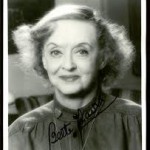 Davis famously put it. There are a myriad of challenges that confront us. Nobody would argue that! We know what those challenges are – all kinds of changes, losses of various sorts from little things to profound ones, aches and pains, the gamut.
Davis famously put it. There are a myriad of challenges that confront us. Nobody would argue that! We know what those challenges are – all kinds of changes, losses of various sorts from little things to profound ones, aches and pains, the gamut.
But, you can also thrive in later years. It’s about your mindset, your emotional and spiritual practices and your strong support network. The kids called support networks these days, their “posse”. Your posse can be made up of old and new friends, your peers, support group members, family, pets, counselors, trusted doctors and spiritual advisors.
Generally, people like you have an assortment of healthy, tried-and-true coping skills that have gotten you this far in your life. Perhaps now, however, you are encountering an accumulation of situations that tax those skills. It may be time to remember your old skills and to learn new ones. It may likely be time as well to rethink your life’s purpose. Purpose is key to keeping your mood up and your heart content.
What stands in the way? Well, too many times, that old Shame rears its head and tells you that you ought to be able to figure this out on your own, that you ought to be able to just “tough it out” and do it alone or else you’re weak. You can’t burden your children so what to do? As the blue box here says, don’t keep it bottled up inside!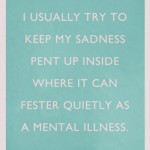
What people often don’t realize is that you are not alone in feeling challenged, stressed, confused, overwhelmed or anxious. These feelings surface when we are going through new phases and transitions in our lives. It’s during these times that it becomes so important to realize you don’t have to reinvent the wheel. There are many practices and tips for how to increase your enjoyment of life in older years.
The important thing is to not give up and figure that just depression goes with the territory. That may be what society tells you, it might be the prevailing attitude. But it is not true. Reach out for help. Counseling and support can turn your life around and help you reclaim your confidence, solid footing and peace of mind. Isn’t it worth a try? What have you got to lose!
Whistlestop – 60 Years and Getting Even Better!
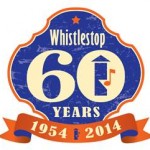 Whistlestop is Marin County’s largest and oldest senior service agency. 2014 marks Whistlestop’s 60th anniversary. In 1954, a grass roots community group decided to band together to make sure their elders were not forgotten. This was before the time of senior centers, considerations for people with disabilities, or specialized transportation. They
Whistlestop is Marin County’s largest and oldest senior service agency. 2014 marks Whistlestop’s 60th anniversary. In 1954, a grass roots community group decided to band together to make sure their elders were not forgotten. This was before the time of senior centers, considerations for people with disabilities, or specialized transportation. They 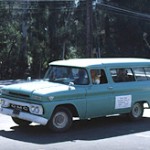 started the Marin Senior Coordinating Council (aka Whistlestop), a non-profit agency dedicated to providing creative programming, helpful advice and administrative services to other organizations serving seniors. Over time, Whistlestop has grown to become the primary local provider of:
started the Marin Senior Coordinating Council (aka Whistlestop), a non-profit agency dedicated to providing creative programming, helpful advice and administrative services to other organizations serving seniors. Over time, Whistlestop has grown to become the primary local provider of:
- paratransit and subsidized transportation services for older and/or disabled citizens in Marin (60 vehicles, 500 trips a day plus subsidized taxi vouchers)
- Meals on Wheels (to over 250 homebound adults each week)
- a rapidly expanding range of classes, support groups and events in the Active Aging Center
- the hoppin’ Jackson Cafe – a collaboration with Homeward Bound of Marin’s Fresh Starts Culinary Academy. Delicious meals are prepared by culinary students and served by our awesome Whistlestop volunteers.
Whistlestop is where I served one of my Counseling Psychology internships while in graduate school. I was blessed to be able to help facilitate the long-running and popular Seniors Circle Wednesday drop-in support group which brought me to Whistlestop every week. Once that began, I saw firsthand what a tremendous resource Whistlestop is for Marin seniors and also what potential it has to do more. 
Now Whistlestop is about to undertake an expansion campaign called Whistlestop 2.0 to provide even more rides, meals and services, plus some affordable apartments in a state of the art, beautiful living center. With Whistlestop’s prime location near shops, cafes, theaters and even the soon to be completed Smart Train, and with Marin being the fastest aging county in California, the timing of this project couldn’t be better!
I am proud to serve as an Executive on Whistlestop’s Board of Directors. See announcement in the newsletter below. Whistlestop Express March 2014. To kick-off our fundraising campaign and to celebrate our 60th Anniversary we are holding a huge party at Rancho Nicasio on September 28th, 2014. Join us! 
German Nursing Home Residents Featured in Classic Film Poses
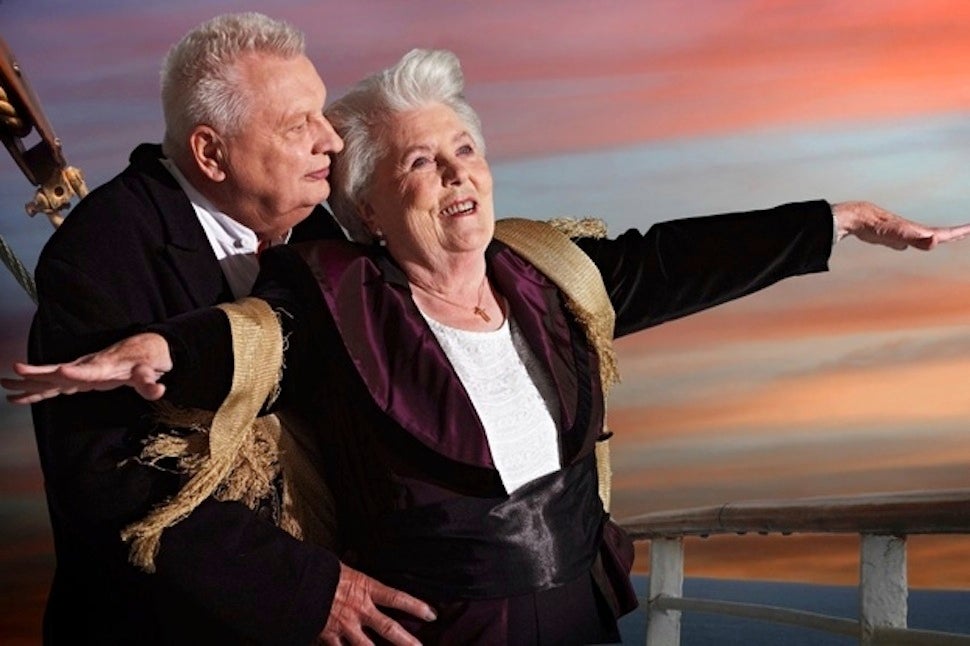
Guess Which Film This Pose is From?
These photos are lovely and, best of all, the residents report having had such a wonderful time
preparing for and shooting the photos. The pictures turned out great!
“How Therapy Can Help in the Golden Years” – wonderful NYT article
Psychotherapy with Older Adults – Recognition in the Mainstream Press – Finally!
This article appeared today on the front page of the New York Times. I am so heartened to read the stories, watch the video and listen to the audio clips with seniors who are benefiting from trying out talk therapy with compassionate and competent psychotherapists.
I think it’s important to emphasize the value shop anabolics online of finding someone you feel comfortable with, someone you can trust. Life is too short, especially in older years, to spend in therapy with anyone you don’t feel is kind, understanding and, at the same time, professional.
Read the whole article by clicking on the link below.
Volunteering as Older Adults – Why Is It a Good Idea and Where Can I Help?
Volunteering is good for our health.
Regular reports in local newspapers and publications extol the great contributions of Marin’s many individuals who generously volunteer their time and leadership skills to help local organizations.
A report published by the Marin Community Foundation entitled “Volunteering by Older Adults in Marin County: the Impact on Volunteers and the Organizations They Serve”, read:
“Older adult volunteers represent a significant resource that nonprofits can leverage during a time ofdecreased funding and increased demandfor services. Marin County’s growing population of older adults is rising to meet this increase in demand for volunteers.”
What may be less known, however, is how beneficial the practice of volunteerism is to the health and wellbeing of the volunteers themselves.
According to the MCF report, the following are some of the major benefits to older adults of serving as volunteers in their communities:
1. Enhanced sense of purpose and self-worth. Contributing wisdom and know-how based on past careers, special interests, experience and life lessons leaves volunteers with a sense of satisfaction and of being valued.
2. Improved mental and physical health. Over half of older adult volunteers report that volunteering contributes moderately or significantly to their physical health, helps them feel significantly better emotionally and “keeps their minds sharp.”
3. Increased confidence in one’s ability to make a difference in the community. Older adult volunteers emphasize how fulfilling it is to use their time, skills and experience to make differences in their communities.
4. Greater social support and community involvement. Volunteering helps most people feel more connected to their communities.
5. Exposure to new experiences and perspectives. Meeting new people, sharing skills, and hearing life stories leads to changing perspectives about community groups and issues.
6. Increased connection to younger generation. Older volunteers emphasize how energizing and valuable it is to spend time helping out younger people and feel that they are making a positive difference in these young folks’ lives.
Where Can I Go To Volunteer My Help?
This is easy to find out in Marin. We are fortunate to have Volunteer Marin, a program of Marin’s Center for Volunteer and Nonprofit Leadership. Founded in 1965 as the Volunteer Bureau, the Center has been building the capacity of volunteers and nonprofits for over 40 years.
If you are Internet savvy, it is simple to log in to a very cool tool: www.VolunteerMarin.org. Once on their home page, click on “Opportunities”. You will see a calendar of all kinds of opportunities, organizations, locations, dates and times that way.
You can also do wonderfully fruitful, customized searches by specifying your specifics and preferences, such as:
- your location, and how far you might be willing to travel
- your weekly schedule; what dates you are and are not available
- what kinds of things you would like to do, for instance:
-
- work with a particular organization
- address a specific issue area, like arts, education, health, hunger, environment, or justice.
- apply your special skills such as administrative, counseling, animal services, education, or construction.
- specify what kinds of people you’d like to serve, such as age, gender, ethnic group, LGBT, veterans, families, or visitors.
- select types of activity
- choose upcoming events that need volunteers
-
I tried out the Volunteer Search Tool and entered a stipulation that volunteer opportunities be within 10 miles of my home in Mill Valley. Up came 120 different interesting opportunities for volunteering at great organizations, including:
- The Redwoods
- The Audubon Center & Sanctuary
- The Marine Mammal Center
- Project Coyote
- Hospice By The Bay
- Marin History Museum
- Fair Housing
- Marin Art & Garden Center
- Marin School Garden Network
- The Bay Model
- The Civic Center
- and more
Doing things like…
- tutoring kids
- serving as a tour guide or docent
- taking care of injured animals
- coordinating cultural and entertainment events
- visiting the dying
- serving hot meals to the homeless
- designing web site and marketing materials
- doing historical research
- reading stories to children
- managing a website
- leading arts groups
- working with autistic children
- and so much more
For those of you who are unable to access Volunteer Marin online, you can contact them on the telephone through their parent organization, the Center for Nonprofit and Volunteer Leadership at415-479-5710.
In this time of decreasing funding for excellent causes, and increased need by our fellow citizens, consider helping out and doing yourselves a favor, too. Try becoming a volunteer.
Another Great Resource in Marin for Aging in Place
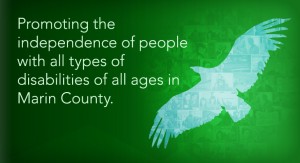 The Marin Center for Independent Living
The Marin Center for Independent Living
As we’ve been hearing, by 2020, the population of older adults in Marin will almost double. This statistic is based on findings in the Marin Community Foundation Publications: “Report on Services of Older Adults in Marin” and “A Portrait of Marin.”
Older adults in our county vary greatly in their economic levels, education, physical abilities, health situations and access to family support. One thing is certain, though, and that is that almost everybody faces or will face a time when they are looking for help.
The Marin Center for Independent Living (MCIL) is an amazing local nonprofit agency dedicated to empowering our Older and/or Disabled Adults to live rich, independent lives in their own homes. MCIL provides a wealth of information, peer support and an in-depth Personal Care Attendant Registry.
MCIL was founded in 1979, organized by a group of dedicated volunteers, following the world changing movement for disability rights begun next door in Berkeley in the 1960’s. It does not charge for its services.
MCIL runs an elegant and simple to use online matching service to help people find carefully screened, competent and compassionate local caregivers – it’s called QuickMatch.org. There are customizable search preferences so consumers can hone in on caregivers’ specific skills, availability, trainings/certifications, and work experience.
MCIL’s Personal Care Attendent Registry is important to know about because: using a for-profit home care agency, a consumer’s current cost for private home care in Marin can average about $60,000/year* (for 44 hours of care/week). The for-profit agency manages all the details for you and charges you for that service.
However, using MCIL as your guide, support and screening agency to directly employ your own caregivers can save you a significant amount of money. For the same 44 hours/week, using MCIL registry caregivers, your cost would average about $40,000/year. This is a wise choice to know about and to consider when you are weighing your options.
In addition, MCIL provides information and support on a full range of topics including:
- assistive technologies
- benefits planning
- personal care and coping skills
- financial management
- household management
- home modification
- housing assistance
- individual advocacy
For more information, go to www.marincil.org or www.quickmatch.org or call them at (415) 459-4265.
*National Clearinghouse for Long Term Care Information, U.S. Department of Health and Human Services: Planning for LTC. Date accessed, January 18, 2012.
*U.S. Department of Health and Human Services National Clearinghouse for Long Term Care Information, 10/22/08.
Loneliness Leads to Serious Health Risks for Seniors
In findings published recently from a UCSF study, researchers were surprised to find that even people who don’t live alone can be very lonely.
Many of us who provide counseling for residents in retirement homes find this to be true. Individuals can be living surrounded by many other co-residents and still feel massively lonely.
This loneliness, the UCSF study found, can result in a significant 59 percent greater risk of physical decline. Even worse, the hazard risk for severe loneliness was found to lead to a 45 percent greater risk of death.
This points to the need for support for older adults in terms of understanding, empathy, attention, and genuine caring and engagement. Buddy systems for new residents of retirement communities is something often found to help introduce the new resident to potential new friends in their new homes.
Most importantly now, though, is for health professionals and caring communities to first realize the severe impact of loneliness on the physical, cognitive and emotional health of their beloved elders.
For more information, click here to read the entire article on the UCSF study:
Loneliness linked to serious health problems, death among elderly

